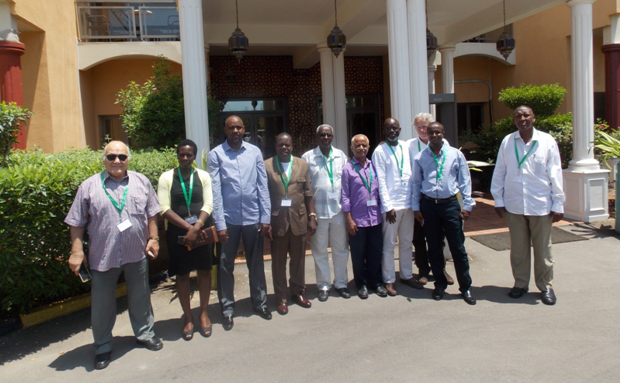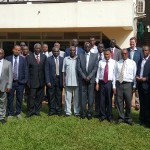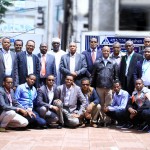Djibouti’s livestock resources are important approximately 60% of the population who depend on it as a source of livelihood. There is an estimated 1 million head of sheep and goats and 300,000 cattle in the country. The sector is faced with many challenges including inadequate government policies to support sustainable livestock production, lack of rainfall to naturally produce pasture/fodder, insufficient groundwater to grow irrigated livestock feed, poorly developed public or private sector animal health, production and breeding services.
Moreover, there is little governmental budgetary support that could facilitate and promote private sector investment in the livestock sector. Therefore, the sector has attracted little innovation such as promoting public-private partnership investment to develop it even though most of the country’s inhabitants have a strong cultural attachment to livestock.
ICPALD through VET GOV programme funded by the European Union commissioned a consultancy in 2015 that reviewed Djibouti’s national policies, legislative frameworks and strategies of how a LDF could be established copying from successful ones from around the world. The consultancy also determined the potential to identify and find sources of fresh/brackish water for harvesting to undertake irrigation to develop pasture/fodder infrastructure that will be a key component of LDF. The validation workshop took place on 3rd May, 2016. It was to consolidate consultancy field findings so as to make recommendations that will support the government to align its policies that will support the development of a LDF.
Hon. ILMI MOUSSA HASSAN; CEO of SOLIDARITY INVESTMENT SOCIETY who is a member of parliament and deputy speaker made a brief remark on the importance of livestock to Djibouti pastoral and agro-pastoral populations after opening remarks by Dr. Wamalwa, an Animal Health Expert at ICPALD. Then the study report was presented; discussed and enriched
Major recommendations from the workshop
- The LDF should be used to exploit the otherwise unexploited brackish and / or fresh water sources targeting innovative farmers for pilot interventions to produce quality livestock feed for local use including salt tolerant livestock feed and forage crops
- The fund should accommodate aquaculture
- The LDF should establish linkages to development oriented research organizations within and outside of Djibouti to introduce appropriate feed, technology, and livestock innovations to LDF beneficiaries,
- The LDF should start as a national institution, but with a larger, regional vision as awareness is created among regional member states and institutions of IGAD,
- In addition to credit services, the LDF should ensure that all beneficiaries receive training and support in:
- Business Management including financial literacy and cash flow management,
- Modern livestock and agriculture techniques including improved feeding, health care, and management practices.
- Mobile / Internet Connectivity to maximize efficiency of Application Process and loan payments
- The LDF should be established as an autonomous body/fund under the umbrella of the Djibouti Economic Development Fund under the auspices and technical guidance of the Ministry of Agriculture,
- The LDF should incorporate the principles of private pubic partnerships for sustainability,
- As a next step, IGAD-ICPALD should provide technical support, better define the LDF structure, and support resource mobilization in collaboration with the Djibouti government, private sector, and development partners.
IGAD/ICPALD appreciates the financial support by AUIBAR/EU






